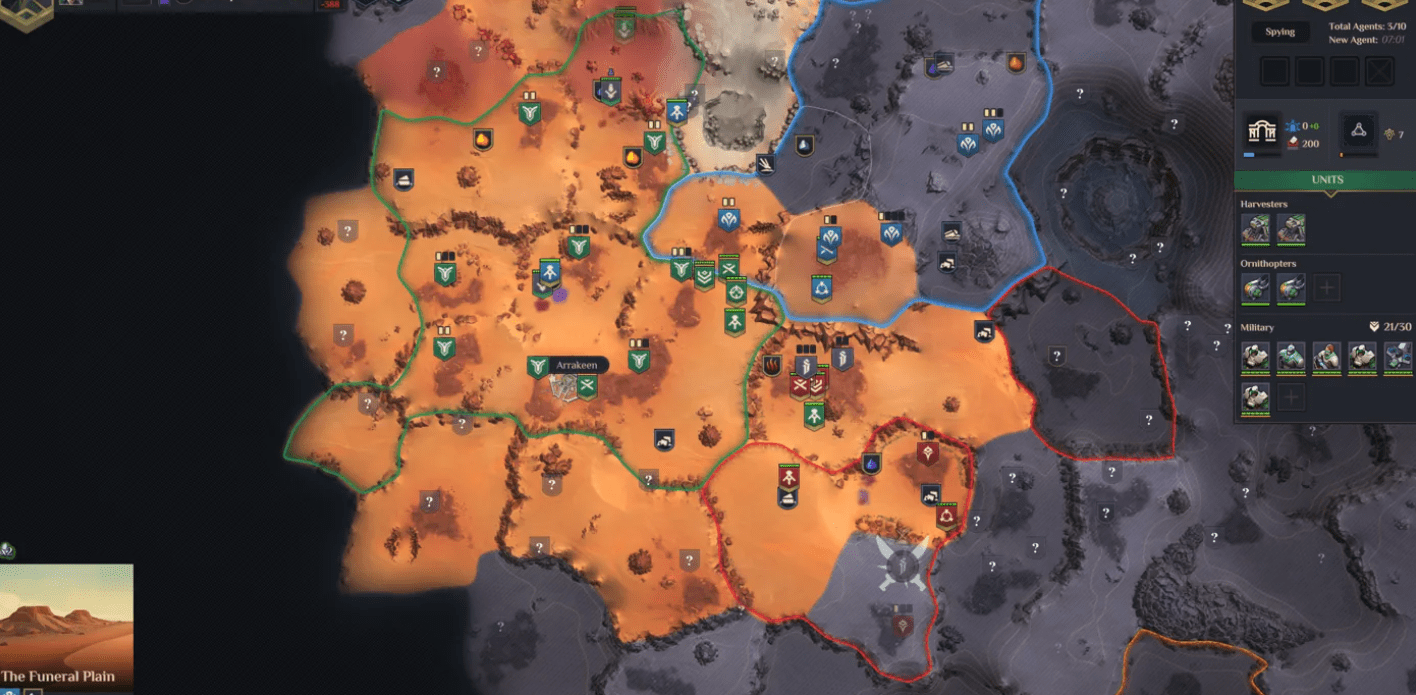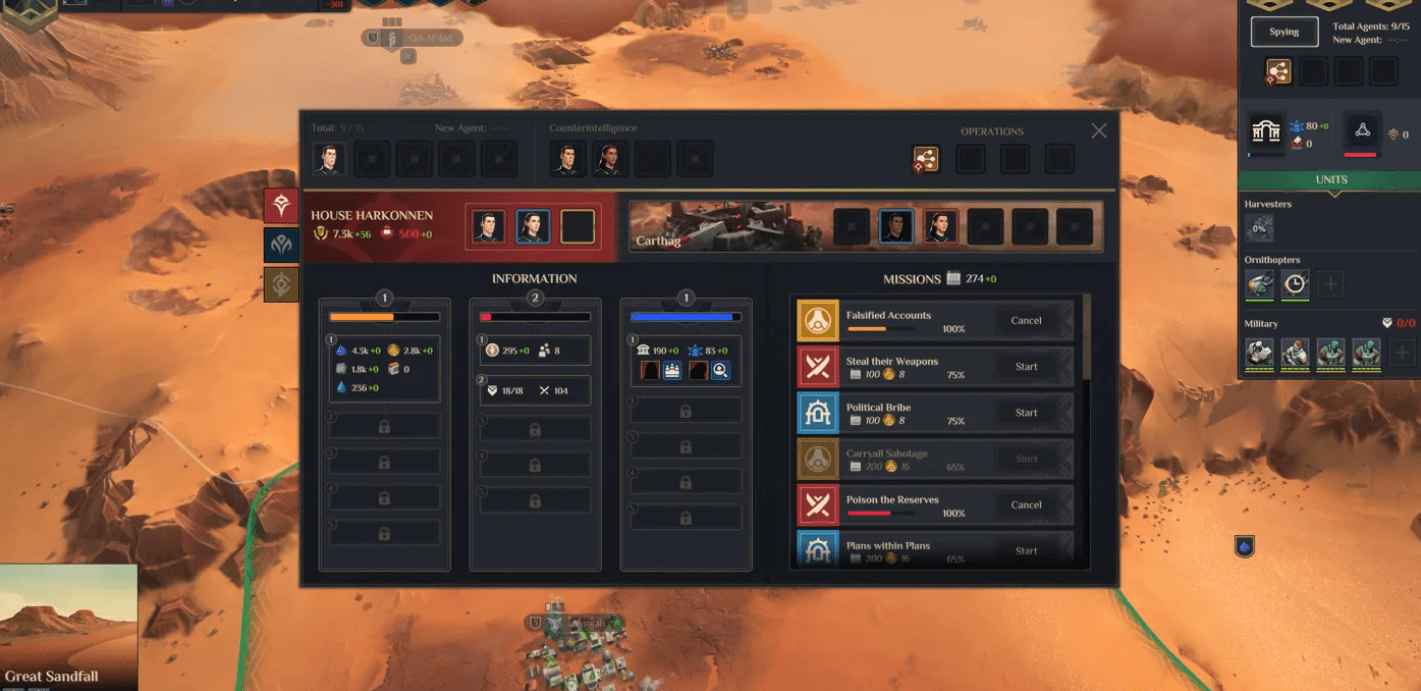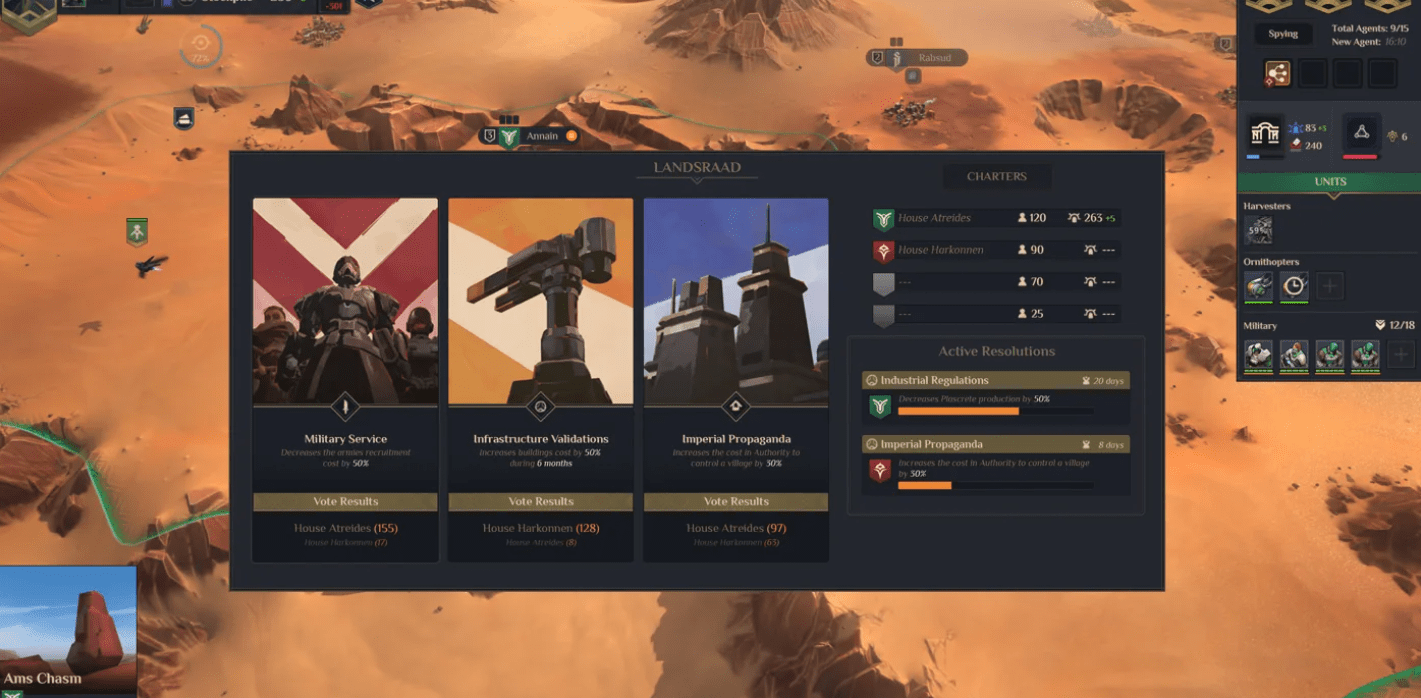Outwitting the death trap that is Arrakis
Building an army to max limit and then using it to swarm your enemies is fun, but it’s also Baron Vladimir basic. Fortunately, in Dune: Spice Wars, the strategies go deeper than a sandworm’s digestive tract. Join us as we scratch the surface of a more modern and multifaceted Dune experience.
Develop & Decimate
While you’ll not know it until everything comes undone, one wrong choice in the Development menu can bury you. After all, the desert takes the weak. If you want this to be your desert, your Arrakis, your Dune, you need to shrewdly evolve along the disciplines of Statecraft, Expansion, Economic or Military.
Obviously, the Military option represents the cudgel. Forces can have their physical strength bolstered with improvements such as Survival Training, tougher Support Structures or Defense Systems that slice through marauders like a crysknife. These buffs improve the odds of surviving a surprise attack from randomized elements—to fight when the necessity arises, no matter the mood.

Alternatively, there are sneakier paths to victory, with Spying Logistics, Diplomatic Maneuvers or an Intelligence Network that make it their mission to disrupt and delay the enemy’s business. Other commanders may look to secure a competitive edge by studying the ways of Arrakis and its peoples via Local Dialect Studies, or by developing the Paracompass (to reveal areas of interest) or Spectral Imaging (to allow Ornithopters to support harvesters for increased spice production).
ㅤ
Last but not least, the money-grubbers can focus on evolving harvesting production, via more efficient Structured Warehouses or savvier Economic Lobbyists. Because hey—brutalizing or backstabbing is a mug’s game. He who controls the spice can control it all, right?
ㅤ
Landsraadical Maneuvers
ㅤ
For players savvy enough to make the right moves, the rules of this tumultuous universe can be tilted every 20 days or so. Three resolutions are put to vote at every Landsraad Council, followed by six in-game days to support or counter a proposal, or abstain entirely.

Votes and Influence are the currencies at play here, and the propositions will prove to be double-edged crysknives, more often than not. Sometimes it’s not even about personal reward. Instead, the priority may be to redirect a debuff onto the enemy, rather than your own forces.
It might be tempting, for example, to use Votes and Influence to secure an Imperial Propaganda resolution that grants +30% Authority production. Alternatively, would it not be more advantageous to make the other 3 houses eat +100% troop recruitment costs or buildings that are twice as difficult to maintain?
Before we move on, it’s worth noting that any House Atreides recruit would do well to pay particular attention to the Landsraad Council voting in Dune: Spice Wars. This faction naturally stands to benefit more from a high Landsraad Rating, Imperial lap dogs that they are.
He Who Controls the Spies…
If referendums aren’t getting results, it could be time to assign undercover Agents to reap some bonuses that way. Depending on the assignment and the specific traits each agent has, this can typically translate into a stronger influx of resources (money, spice, etc). Better yet, as Agents evolve, their Infiltration Level and acquired Intel unlocks unique spy missions and especially lucrative rewards.

Oh, and don’t forget that espionage is a two way street – and enemy forces will be doing their best to return the favor. Neglect to assign counterintelligence agents and it won’t take prescience to see a future that’s stickier than a Harkonnen goo bath.
Clearly, Arrakis’ shifting sands of war can make things spicier than the average RTS. Check it out now via Steam Early Access.

